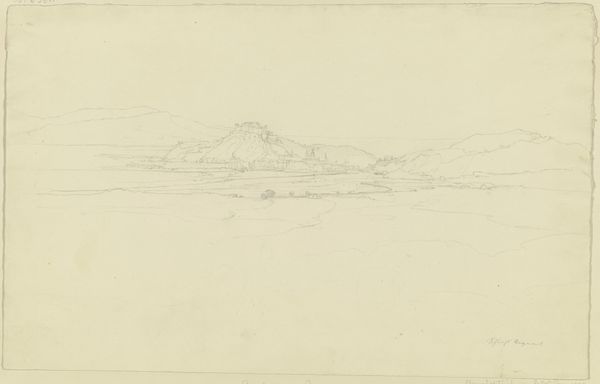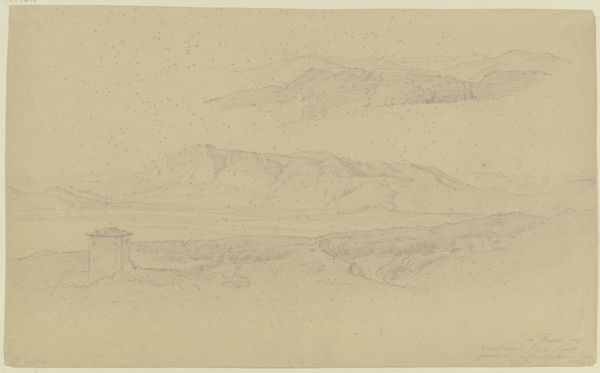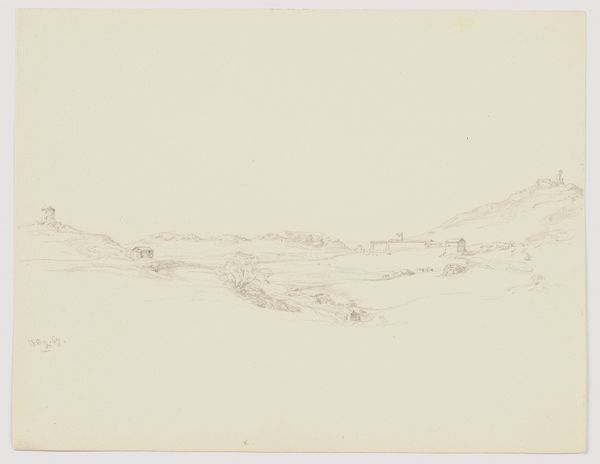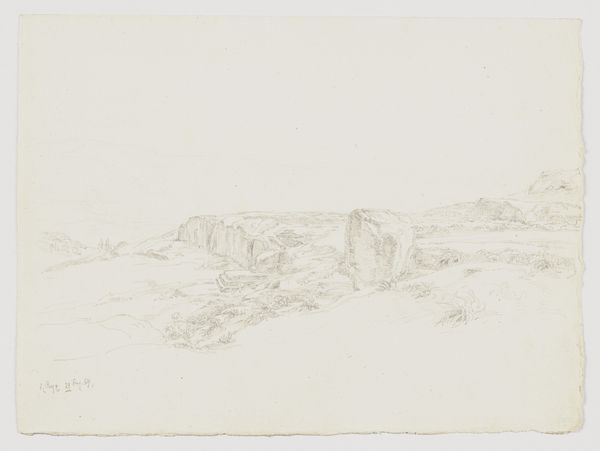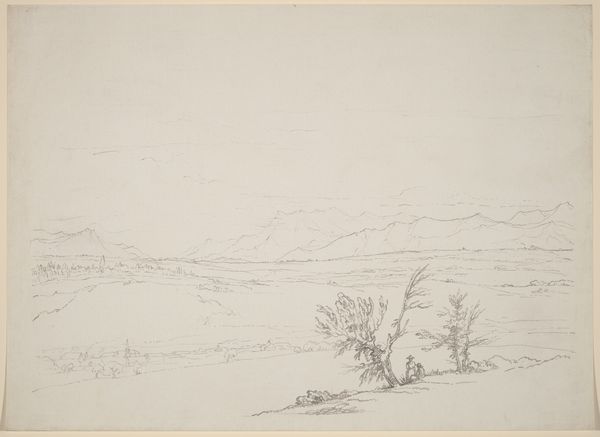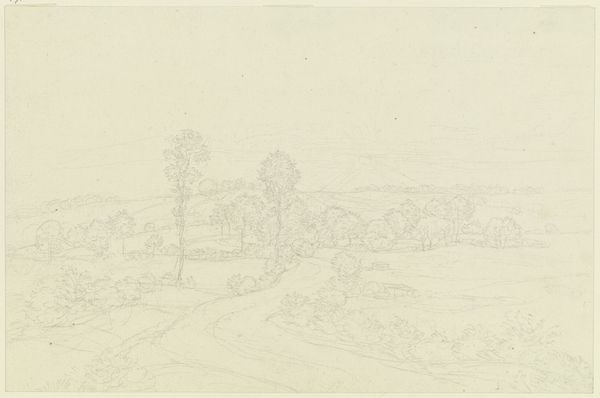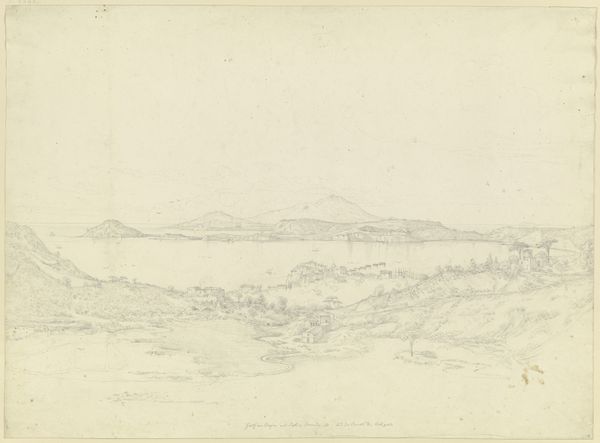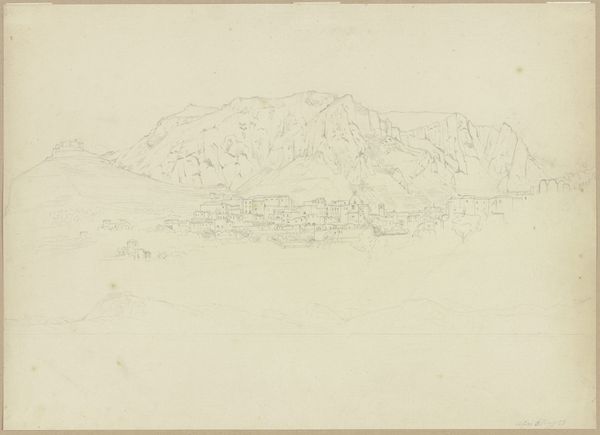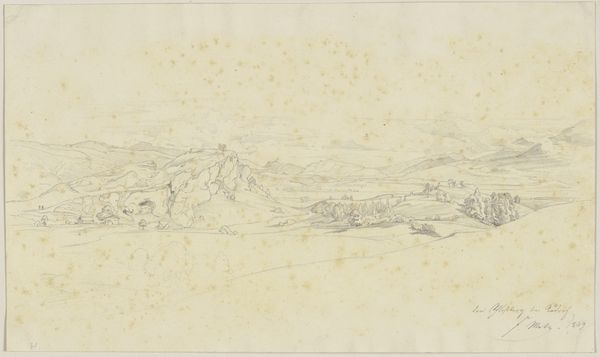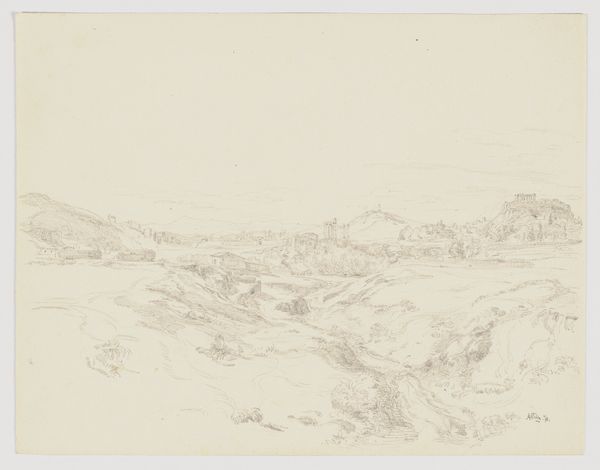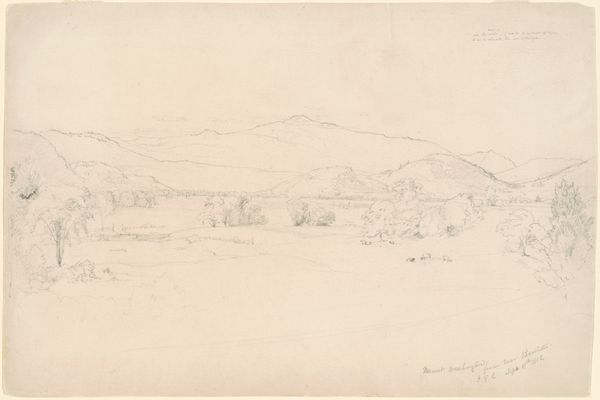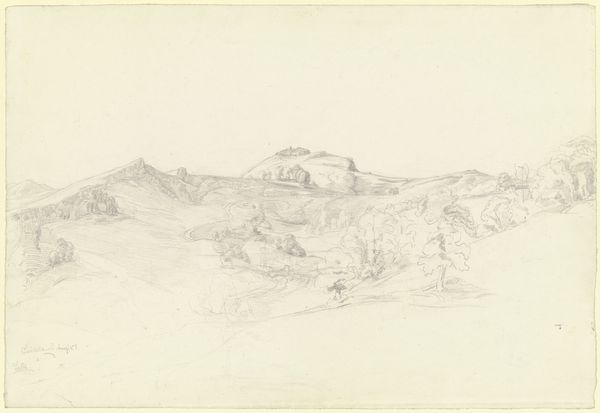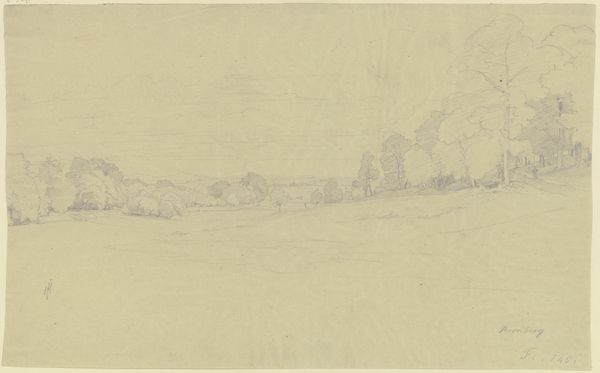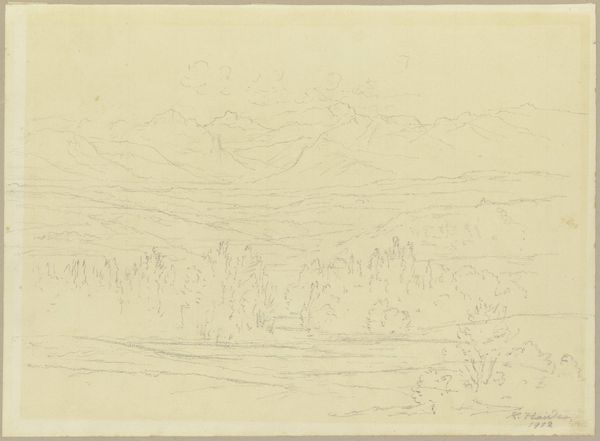
drawing, pencil
#
drawing
#
16_19th-century
#
landscape
#
etching
#
german
#
pencil
#
realism
Copyright: Public Domain
Editor: We’re looking at "Corinth," a pencil and etching drawing by Friedrich Metz, dating from 1876. There's something almost dreamlike about this landscape, a subtle realism. What jumps out at you, Professor? Curator: I notice immediately how Metz positions this landscape. It is not just about rendering a place, but it seems intent on depicting Corinth at a particular historical juncture. Consider the political landscape of the late 19th century. The rise of nation-states, growing archaeological interest in ancient Greece… Do you think Metz might be engaging with those trends here? Editor: I hadn't thought of it that way, I just saw a simple landscape. So, the choice to depict Corinth then becomes more than artistic – it’s a statement? Curator: Precisely! And consider the medium. Why etching and pencil? It allows for a certain level of detail, of course, but also conveys an immediacy, like a field sketch. This blend suggests scientific observation and romantic idealization—a powerful combination in the context of archaeological rediscovery. Do you think there's a visual hierarchy here? Editor: Definitely. The mountains are fainter in the distance compared to the foreground trees, which grounds the image. How would the reception of this landscape change, if say, this piece was a painting instead of a pencil sketch? Curator: That's a perceptive question! A painting might lend itself to grandeur and idealized representation, perhaps aligning with the nationalist rhetoric that co-opted classical antiquity. But as an etching, "Corinth" retains a sense of humility, emphasizing its connection to place, to the labor of observing and recording. It avoids monumentalizing, which democratizes the image and its public perception. Editor: I see it now! What started as a simple landscape is packed with meaning depending on historical contexts and mediums used! Thanks for pointing out a lot of what I initially missed! Curator: It’s all about asking those questions. Now you are looking *through* art, instead of *at* art!
Comments
No comments
Be the first to comment and join the conversation on the ultimate creative platform.
